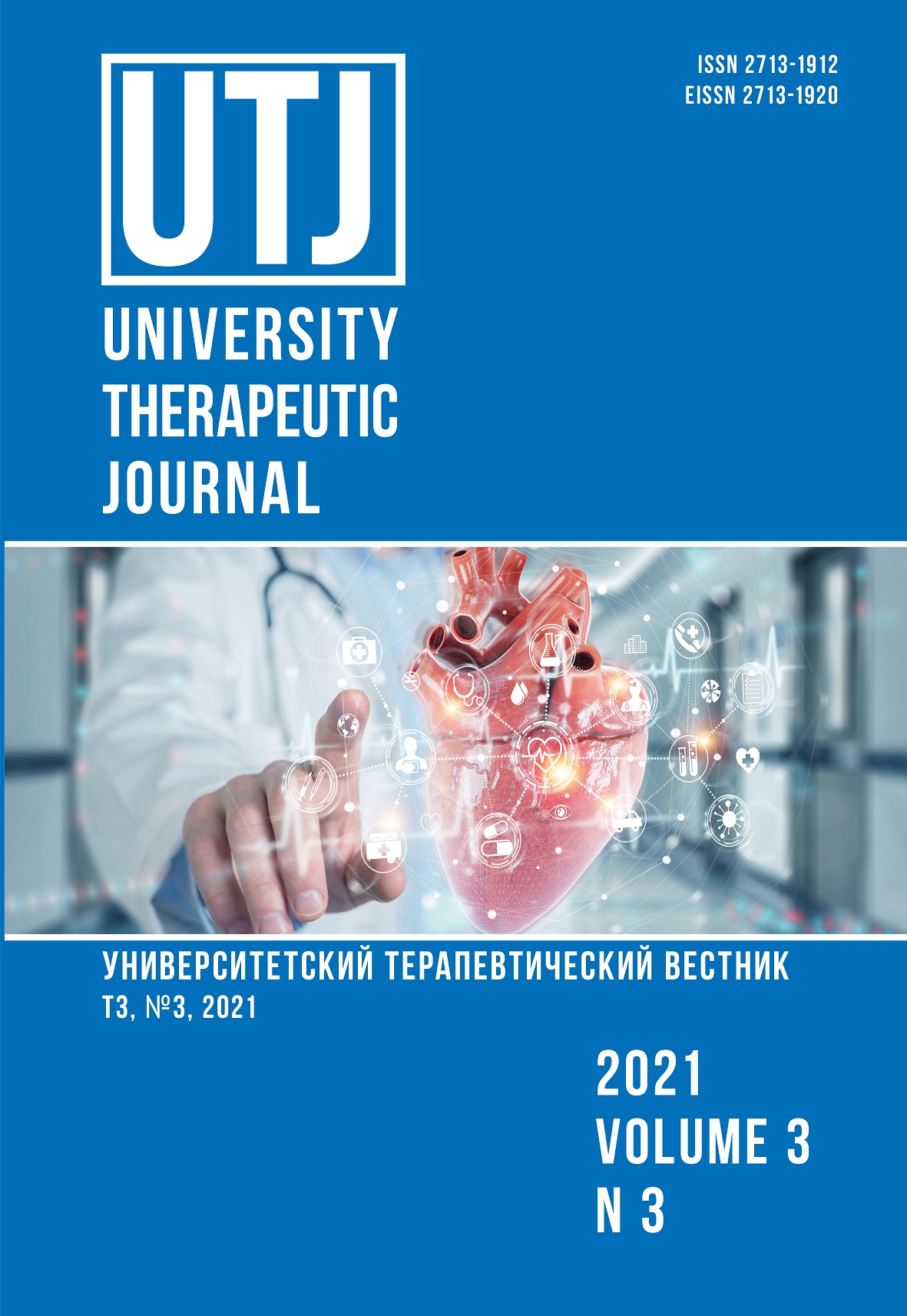THE ROLE OF HELICOBACTER PYLORI INFECTION AND CANDIDA SPP. IN THE PATHOGENESIS OF METABOLIC SYNDROME
Abstract
The article discusses the possible pathogenetic mechanisms of the formation of metabolic disorders and metabolic syndrome in the conditions of long term persistence of infectious agents in the human body, such as Helicobacter pylori and yeast like fungi of the genus Candida. The variants of the influence of Helicobacter pylori infection on the development of obesity, carbohydrate metabolism disorders (including in the development of type 2 diabetes mellitus), lipid metabolism disorders, as well as in the pathogenesis of diseases of the cardiovascular system are considered separately. An important aspect contributing to the occurrence and progression of metabolic changes is also considered to be the invasion of fungi of the genus Candida, when an inflammatory process develops in the conditions of intestinal candidiasis dysbiosis and the process of lipid peroxidation is activated.


